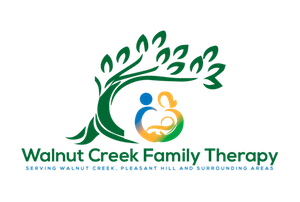Adult Children of Alcoholics
Are you struggling to create fulfilling friendships? Are you lacking the romantic relationship you have always dreamed of? Are you intensely critical of yourself, severely shaming yourself for any small mistake? Do you feel isolated and depressed? Do you find yourself keeping your distance from others in order to “remain safe”? Are you distrustful of authority figures? Was alcohol a central presence in your home of origin?
If you answered yes to most of these questions then you may be an Adult Child of an Alcoholic (ACA).
 The term “Adult Child of an Alcoholics” has two parts. The term “Adult Child” refers to anyone raised in a neglectful or abusive home. They are left with unmet childhood needs that often play out in adulthood in unhelpful ways.
The term “Adult Child of an Alcoholics” has two parts. The term “Adult Child” refers to anyone raised in a neglectful or abusive home. They are left with unmet childhood needs that often play out in adulthood in unhelpful ways.
In an Adult Child of an Alcoholic, alcoholism and unhealthy co-dependence are also central traits of that home. The ACA can jump through many of the hoops of relationships but does not find fulfillment. They may appear healthy from the outside but deep down they feel empty and alone. ACAs rarely feel safe enough to truly become vulnerable with another person. This sense of longing for closeness yet guarding against injury is the dilemma of the adult child.
Other common symptoms of the ACA are noted in “The Laundry List” at www.adultchildren.org.
This list of symptoms can be both painful and hopeful to read. It can be painful because it is extremely difficult to directly and honestly acknowledge your struggles. It can be hopeful because others have been there and have found healing.
The key is to acknowledge that you are an ACA and begin to work towards healing. Adult Children require support and unconditional acceptance. They require encouragement and guidance in learning to create a healthier, more connected life. By walking with you along the way and identifying pitfalls, I work with you to heal from your childhood wounds in order to become the person you were meant to be. Together we learn to challenge unhelpful thoughts, utilize mindfulness and guide you towards developing the skills to create deep, authentic relationships.
Therapy has been shown to be extremely effective in treating the symptoms of the ACA. The adult child is not doomed to any type of limitations. You may feel defeated at times but recovery can lead you into a life of great joy and love. Being an ACA is not a death sentence, but rather an invitation: An invitation to take charge of your healing and live a life that is impassioned, energized and filled with meaningful relationships!
Your experience as an adult child is not unusual and you are not alone. Wanting to protect yourself from pain is as normal to the brain as breathing. You learned to behave this way as a child to survive an abusive environment. It is also very common that after you leave the abusive environment you continue to bring these overly protective behaviors with you. This is where therapy can help.
Here are some common objections you may be thinking:
I just want to be normal. Why should I give myself the label of ACA?
The label of ACA is simply a way to understand the specific experiences children from alcoholic/abusive/neglectful homes have. It does not define who you are or create any limitations to what you can accomplish. In fact, many ACAs who work on healing the pain from their past go on to be highly successful people with happy and engaged relationships.
How much is this going to cost? I can already tell this is going to be too much money!
Therapy is very much an investment into your life and well-being. You deserve to invest in something that builds you up and creates the life that you imagined having. It is a decision that takes some financial commitment but it’s also a decision that you will not regret.
I’m afraid this process will be too painful. I don’t really want to deal with the discomfort.
Therapy can seem uncomfortable and painful. But consider the level of discomfort you are currently living in: an almost total lack of meaningful relationships, isolation, depression, harshly shaming yourself for any small mistake. These are far greater discomforts to bear than the supportive therapy which I offer. The discomfort of therapy is also temporary but the changes and benefits are not temporary. The things you learn will be useful throughout your life.
One thing I pride myself on is effective and timely treatment. From the first session, one of the primary principles that directs my treatment is “how can I work myself out of a job” or “how can I insure effective healing in this client, to the point where they no longer need me as their therapist.” This may seem odd or unbelievable to some but it has continuously served me well in my practice.
I recognize and honor the bravery it takes to attend therapy. Therapy may seem impractical to you for a variety of reasons, listed above and otherwise. I ask you to search your heart and consider why you are here today reading this. Practicality is often a common disguise for fear. Do not let fear stop you from moving towards healing.
I have seen growth that is as inspiring as any of the greatest success stories ever told. In over 10 years of working with this issue I have seen people move from a place of fear to a place of passion and engagement. I have seen clients engaged in relationships they would never have dreamed possible. As clients learn to leave behind these old patterns of behavior and engage in a new way of life a new world of possibilities opens up for them!
Many clients I see come from therapists who are not educated, trained or experienced in working with the ACA. Adult Children of Alcoholics present with complex symptoms that may require specific education and training in order to achieve optimal results. I have the experience, training and education required to achieve these results.
I have over 10 years of experience working with ACAs. I am certified in various trauma treatments, mindfulness, motivational interviewing and guided imagery approaches. Motivational Interviewing provides the tools to address issues of addictive behaviors, avoidance of feelings and encourages a more honest assessment of life decisions. My client-centered approach allows me to cater treatment according to where you are ready to go and the speed at which you are prepared to move.
If this resonates with your experience or you would like to learn more, I invite you to give me a call for a free consultation.
– Andrew Lindeman, MS, MFT

